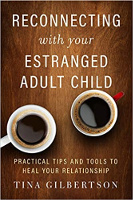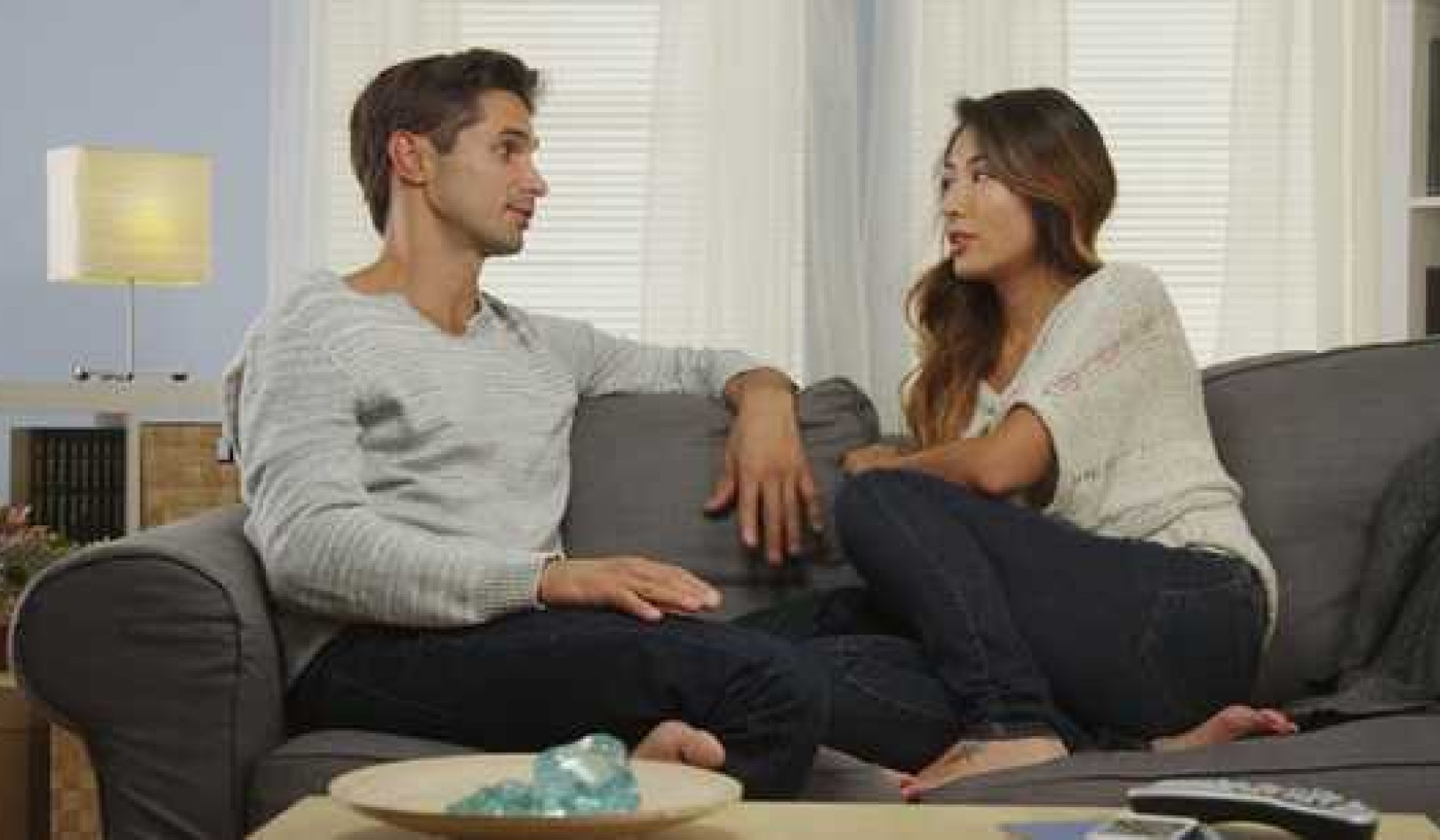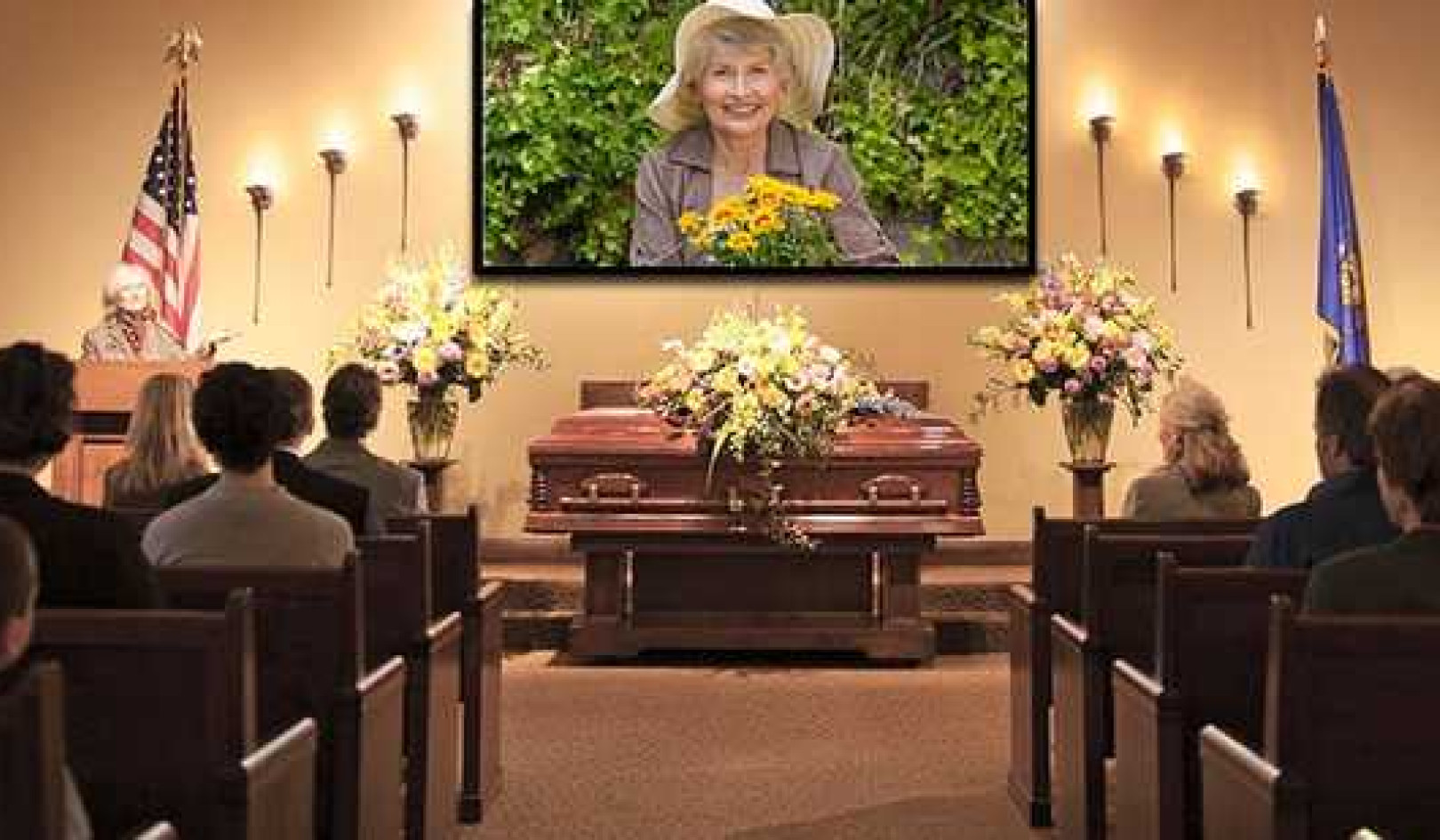
Image by Wolfgang Eckert
In many modern families, the parent-child relationship goes sour when the children become adults. A divide opens up between the apple and the tree that bore it. As the distance grows, Mom or Dad’s vision of a happy multigenerational family starts to fade. Many parents today feel the sting of this type of estrangement.
The word estrangement comes from the Latin word extraneare, meaning “to treat as a stranger.” Becoming a stranger to one’s child is one of the most painful things that can happen to a parent.
Making Different Choices
If you had custody of, and a close relationship with, your child at any time before she became an adult, and someone seems to be turning her against you now, there’s much you can do to rebuild your relationship. If your child has a spouse or partner, you might end up with two relationships for the price of one, and in general your family may not look the way you once envisioned it. But if you value family as I do, that won’t matter in the end.
If your estranged child is under the age of thirty or has recently left home, he may simply be undergoing a normal phase of adult development that calls for more psychological distance from parents. It’s a stage that can be alarming for both parents and children, but it doesn’t last forever.
Estrangement Changes Everything
That question, “Do you have children?,” was so easy at one time. “Yes, I have two,” or “Yes, a little girl,” was your automatic answer. But it’s not that simple anymore. Now you’ve got an adult child who’s not talking to you, and you’re not sure what to say when asked about children. You may not even know where he lives. You may have a grandchild you’ve never met.
How do you answer those painful questions? And what do you do with the emotions that are constantly triggered? There may be grief and despair, yes, but there might also be resentment and anger. You gave so much of yourself — time, love, money, energy — to your child. How can he repay you by acting this way?
You’re reading this book because you want your relationship with your child back. But you also want to emerge from this ordeal without the shadow of all that pain. How will you heal the deep wounds surrounding this rejection? Those hurt feelings need to be resolved, no matter what happens in the future.
Willing To Do Some Self-Reflection
If you’ve read this far, you’re likely ready and willing to do some self-reflection. You know it will benefit your personal growth, even if your adult child never comes around (though I hope for both your sakes that’s not the case). A bit of navel-gazing is valuable for someone in your shoes — not to punish yourself for mistakes made in parenting, but rather to uncover and get to know your essential, lovable self. This core part of you can lose vitality when you’re being held at arm’s length by someone you love.
Although you know you’re not perfect, you’re probably ready to let go of any unnecessary shame that’s been weighing you down — maybe starting before the estrangement began. I assume you want to enjoy a healthy level of self-esteem and to maintain good communication with the people most important to you. I believe you also want to be a positive role model (even if only for yourself) and a self-actualized, reasonably content, and fulfilled human being.
Change is possible, both within and without. The greatest burden for estranged parents is unnecessary shame. My purpose is not just to help you repair your relationship with your child, but also to fortify your bond with yourself.
Healing from estrangement is an opportunity for intense personal growth if you’re up for it. This is true whatever the outcome may be.
Pain Cuts Both Ways
Most parents don’t get to see the vulnerability and unhappiness in their distancing child. Instead, they’re presented only with heated rejection or chilly indifference. No wonder they’re sometimes ready to believe they created a monster.
We humans are at our most hurtful to others — our most “monstrous” — when we’re in pain ourselves. As the saying goes, hurt people hurt people. It makes sense that your child’s rejection, coming as it does from a place of pain, will also be hurtful to you.
Birthdays and holidays produce hot spots of difficult emotions for rejected parents. Even the anticipation of a holiday can elicit dread and despair. But what of the adult child? For every Thanksgiving dinner you endure without your child, watching others gather with their families, she also experiences the holiday without you.
You and your estranged child also share the task of explaining to friends why you won’t be getting together with the family for the holidays this year. Believe it or not, it’s the same awkward conversation for him that it is for you. Estranged adult children, for the most part, feel unsupported when they share the sensitive information that they’re estranged from you. Friends, relatives, and society all pressure them to reconcile.
It’s clear that the vast majority of estrangers do not cut ties with their parents on a whim, for purely materialistic reasons, or just because someone else tells them to. So — please don’t let me lose you here — contact with Mom or Dad has to be pretty darn painful to be worse than no contact. Don’t worry: it’s not necessarily as bad as it sounds, and the situation can potentially be mended if you keep an open mind. Let me share some encouraging words from a mom who’s now reconnected with her formerly estranged daughter:
I didn’t know what to do, and couldn’t work out why my daughter was so angry and hostile towards me, and didn’t initiate any contact. I can now appreciate how complex the situation was, and feel able to look at our estrangement more from her perspective.
You and your estranged child are both in uncharted waters; he may not have the words to tell you what went wrong or what he’d like you to do about it. Even if he does, he might use language or examples that only confuse you and leave you feeling helpless.
It’s a hard truth, but important to understand: for many adult children and their advocates, estrangement is considered a healthy response to an unhealthy situation. They feel better with distance — healthier, and even happier from day to day. I can’t stress enough that no one should be forced, coerced, or shamed into participating in relationships that hurt them, either emotionally or physically — even with family. Trying to influence your child in these ways will do more harm than good.
Your child probably views you, your behavior, and your relationship with her as unalterably unsatisfying in some way. It’s been easier for her to give up on you than to hope you’re willing and able to change. This is what you’re up against. If you now want to help her heal, and to be a part of her life again, you’ve got to convince your child that a relationship with you can be low in stress and high in fulfillment. It’s not easy, but there are specific behaviors you can adopt or increase to help make it happen.
Shame and Defensiveness: The Enemies of Awareness
Whether or not the estrangement is acrimonious, many parents become defensive when their adult children don’t want to maintain contact. Shame and defensiveness are the enemies of awareness. And unfortunately, there can be no movement, no change, and no healing without awareness.
Shame says, “I don’t want to know if I did anything to deserve this; it’s too painful to feel that bad about myself.” Awareness says, “I want to understand my part in this, even if it’s painful.”
Recover A Relationship With Your Child
In order to recover a relationship with your child, you must find a way to put shame aside and invite compassion into your heart. You need to tolerate looking at whatever your child may want to show you if healing is to occur. If there is something important for you to learn about the way your child experiences you, you won’t be able to see it through a cloud of shame.
You have no option for a considered response as long as shame and defensiveness have you in their grip. Breaking free of these can pave the way for a closer, calmer, and more honest relationship with your child.
This is from a reader of one of my blog posts:
I had many years of a very painful relationship with my mother. When I was thirty-five there was a breakthrough.. . she admitted in a letter that she had loved me, but with “white-knuckled love.” That moment transformed my life, as I was finally able to know that this deep truth I knew about her love, but could not admit, was true. I became much more able to feel sane!!
Your will toward self-awareness can not only thaw your relationship with your estranged child but can also help her understand herself better. Thus it can be a gift to both of you.
Compassion Is Key
You are a loving, lovable, and still growing version of somebody’s child yourself. You may be surprised by the idea that finding compassion in your heart, not just for your child but for yourself, can help you overcome estrangement.
Instead of approaching the problem with a right-and-wrong mentality, which pits you and your child against each other, compassion says you’re in this together. I see far too many comments from hurting parents that look like this:
My daughter chose to cut me off after having helped her through lifelong traumas with no appreciation or thankfulness on her part whatsoever. Estrangement between an adult child and a parent is usually the result of this generation’s “Give me, give me, give me” attitude, and nothing is ever good enough for these selfish, self-absorbed adult brats.
The harsh tone and the name-calling are clear indications of the amount of pain this mother is in. Yet if reconciliation is the ultimate goal, this us-versus-them mentality can’t prevail.
The writer of this comment appears to be hurting too much at the moment to see that she and her daughter are in this together. She’s lost sight of her daughter as another unique, still-growing individual. In this comment she demonizes her daughter and an entire generation. This is what happens when we feel powerless against those who hurt us. We become frozen in our anguish, and our hearts become hard.
Healing from the Agony of Being Rejected
This parent’s pain needs to be acknowledged so that she can begin to heal from the agony of being rejected. Her daughter is not the right person to help her with that, no matter how close they used to be. But that doesn’t mean this mom is out of luck. She can (and must, if she wants to heal) receive the compassion she deserves. If there’s someone in her life who’s understanding and sympathetic, she can cry on that person’s shoulder and begin the healing process.
She can talk to a friend, counselor, or cleric who will stand as a caring witness to her suffering. Whatever the outcome of the estrangement, her own healing will facilitate positive change. This mom needs no less than to be heard and cared about — not least by herself — in order for the storm to subside and the waves to calm. Once she addresses and responds with genuine sympathy to her own pain, she can better deal with that of her daughter — who has surely also endured pain, if she’s willing to cut ties to her one and only mother.
Every generation needs and deserves compassion — parents, children, children who become parents, their children, and so on, and so on, and so on. We’re all in this together.
Reprinted with permission of the publisher,
New World Library, Novato, CA. ©2020 by Tina Gilbertson.
www.newworldlibrary.com or 800-972-6657 ext. 52.
Article Source
Reconnecting with Your Estranged Adult Child: Practical Tips and Tools to Heal Your Relationship
by Tina Gilbertson.
 Parents whose adult children have cut off contact wonder: How did this happen? Where did I go wrong? What happened to my loving child?
Parents whose adult children have cut off contact wonder: How did this happen? Where did I go wrong? What happened to my loving child?
Psychotherapist Tina Gilbertson has developed techniques and tools over years of face-to-face and online work with parents, who have found her strategies transformative and even life-changing. She cuts through the blame, shame, and guilt on both sides of the broken relationship. Exercises, examples, and sample scripts empower parents who have felt powerless. The author shows that reconciliation is a step-by-step process, but the effort is well worth it. It is never too late to renew relations and experience better-than-ever bonds.
Click here for more Info and/or to Order this Book. Also available as a Kindle edition and as an Audiobook.
More books by this author
About the Author
 Tina Gilbertson, MA, LPC, is a licensed professional counselor specializing in family estrangement. She has been quoted in hundreds of media outlets, including Fast Company, the New York Times, the Washington Post, the Chicago Tribune, and Real Simple.
Tina Gilbertson, MA, LPC, is a licensed professional counselor specializing in family estrangement. She has been quoted in hundreds of media outlets, including Fast Company, the New York Times, the Washington Post, the Chicago Tribune, and Real Simple.
She hosts the Reconnection Club Podcast.
Read Tina's estrangement-focused blog posts at reconnectionclub.com/blog.



























